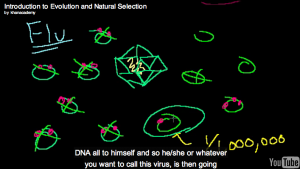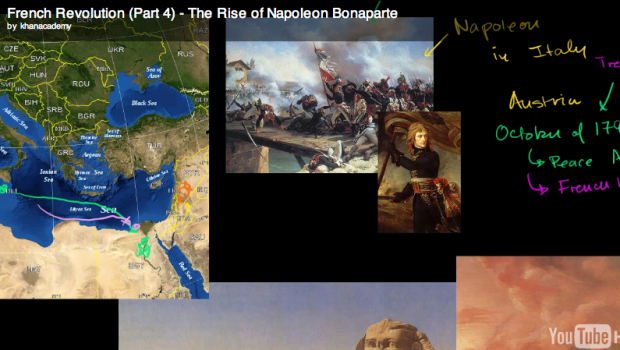"My cousins said they preferred seeing me on YouTube than in person when they first saw me tutoring them online," Khan said at the Big Ideas Fest earlier this week. "The sessions were tangibly stressful for the kids. One of them said she was feeling judged even though I wasn’t trying to judge her."
With videos, learners can watch on their own time, and pause and repeat information until they absorb the subject matter.
And though Khan has had offers to create glossier, highly polished versions of his videos, his public wants him to stay the same.
"They say, 'I love the fact that it feels like a guy is just talking to me, as opposed to some publishing company,'" Khan said. "People love the humanity. Most videos I have not prepared for. I put the problem up there and I do it in real time. And I hear from people how refreshing that is."
 It's true -- public comments on his site are full of praise, like this one: "Because of you I can do maths rather quickly in my head. It feels weird. Make it stop." And this one: "You taught me way more than my teachers ever did at school about the French Revolution. And I am French!"
It's true -- public comments on his site are full of praise, like this one: "Because of you I can do maths rather quickly in my head. It feels weird. Make it stop." And this one: "You taught me way more than my teachers ever did at school about the French Revolution. And I am French!"
Watching videos allows learners to see the art of problem-solving, and that it's okay to make mistakes. It's all a part of the equation.
Khan's hope for the future for the Academy? The possibility of offering value-added services to schools, such as teacher dashboards that allow teachers to follow student progress in real time, so they can tend to those who are stuck with certain problems. At the moment, the Academy is giving those dashboards away for free, and hopes to be able to continue to do that.
As a non-profit, it's currently supported by grants -- some big ones from large philanthropies. But with all those users (on track to be at 10 million in two years, he says) even if those grants went away, and only one percent of users donated $1 per month, it could sustain itself.
His challenge to the audience at the conference, a group of innovators and changemakers like himself: "How come no one else is doing this?"
Watch Khan's overview of the French Revolution to see what he's talking about.

 ntent is rich and packed full of information -- three degrees from M.I.T. and an MBA from Harvard have certainly fed the depth of Khan's knowledge -- but it's his easy-going, casual teaching style that keep bringing learners back.
ntent is rich and packed full of information -- three degrees from M.I.T. and an MBA from Harvard have certainly fed the depth of Khan's knowledge -- but it's his easy-going, casual teaching style that keep bringing learners back.

